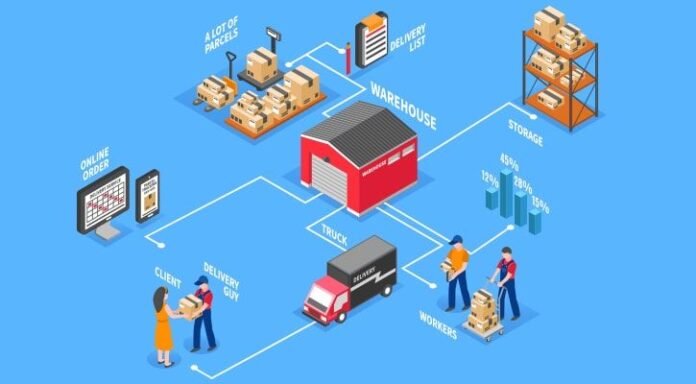The rise of e-commerce has fundamentally transformed the way we shop and conduct business. With the convenience of online shopping, consumers can now order products from the comfort of their homes and have them delivered to their doorstep within days or even hours.
Freight Storage and the logistics industries have been significantly impacted by this shift in consumer behavior. In this blog post, we will explore the significant changes brought about by e-commerce on freight storage strategies and how businesses adapt to meet the demands of this evolving landscape.
The Rapid Growth of E-commerce
E-commerce has experienced exponential growth in recent years, and this trend shows no signs of slowing down. Consumers have embraced online shopping, and businesses have expanded their online presence. The surge in e-commerce has led to an increased demand for freight storage solutions to handle the growing volume of products that need to be stored, picked, packed, and shipped.
The Need for Efficient Fulfillment Centers
One of the most significant impacts of e-commerce on freight storage strategies is the need for efficient fulfillment centers. Traditional warehouses designed for bulk storage are needed to meet the demands of e-commerce operations. Instead, businesses invest in state-of-the-art fulfillment centers strategically located to reduce delivery times and shipping costs.
These fulfillment centers are designed with automation in mind, utilizing advanced technologies such as robotics and conveyor systems to streamline the order fulfillment process. This shift towards automation allows for faster order processing and reduces the need for excessive manual labor.
Inventory Management Challenges
E-commerce has also introduced new challenges in inventory management. With a wide range of online products, businesses need to stock a diverse inventory that can cater to various customer preferences. This requires sophisticated inventory management systems that can track stock levels, demand patterns, and lead times accurately.
Furthermore, e-commerce businesses often operate on a just-in-time inventory model to minimize storage costs and maintain a lean supply chain. This approach places additional pressure on freight storage strategies, as products must be readily available for immediate shipping without overstocking.
The Importance of Last-Mile Delivery
Last-mile delivery is a critical component of e-commerce logistics, and it has a direct impact on freight storage strategies. As consumers expect faster and more convenient delivery options, businesses are exploring innovative ways to optimize their last-mile delivery operations. This includes strategically locating smaller storage facilities closer to urban areas to reduce delivery times and costs.
Micro-fulfillment centers and dark stores are emerging as solutions to address last-mile challenges. These facilities are designed to store products in high-demand areas, ensuring quick and efficient delivery to customers’ doorsteps.
Sustainability Concerns
The growth of e-commerce has also raised sustainability concerns related to freight storage. As more goods are shipped directly to consumers, there is an increase in the carbon footprint associated with transportation and warehousing. Businesses are now looking to reduce their environmental impact by adopting eco-friendly freight storage strategies.
Some companies are implementing green building practices in their fulfillment centers, using renewable energy sources, and optimizing transportation routes to reduce emissions. Additionally, reusable packaging and more efficient packing techniques are being explored to minimize waste.
Data-Driven Decision-Making
E-commerce has generated an enormous amount of data, and businesses are leveraging this data to optimize their freight storage strategies. Advanced analytics tools track customer behavior, inventory turnover, and shipping performance. This data-driven approach allows businesses to make informed decisions about inventory levels, storage locations, and shipping routes, ultimately improving efficiency and reducing costs.
Final Thoughts
The impact of e-commerce on freight storage strategies must be balanced. The rapid growth of online shopping has led to a shift in warehousing and logistics practices, necessitating the development of efficient fulfillment centers, advanced inventory management systems, and innovative last-mile delivery solutions. Sustainability concerns and data-driven decision-making have also become essential to modern freight storage strategies.
As e-commerce continues to evolve and grow, businesses must remain agile and adapt their freight storage strategies to meet the ever-changing demands of the online marketplace. Those who successfully navigate this transformation will be well-positioned to thrive in the digital age of commerce.
Read Also: The Top Tips for Becoming a Strong Freight Agent






























































